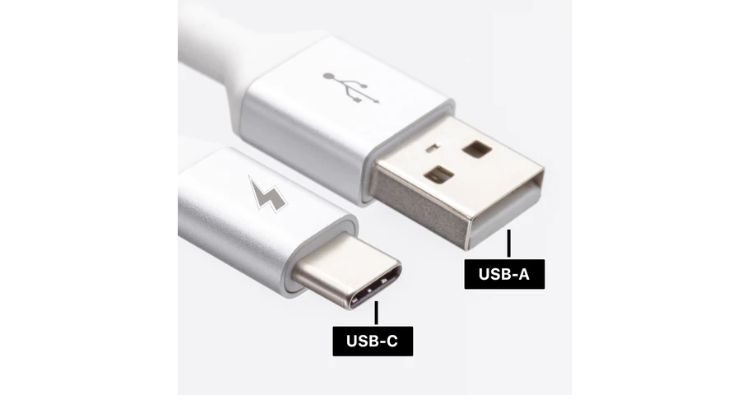Usb A vs Usb C Charging | ZONSAN
USB-A and USB-C are different types of USB connectors. USB-A is the traditional USB connector that has been in use for many years and can be found on most devices and charging cables. USB-C, on the other hand, is a newer type of connector that is becoming increasingly popular because of its small size and reversible design.

Is USB-C better than USB-A for charging?
When it comes to charging, USB-C is generally considered to be more efficient than USB-A. USB-C supports higher power charging, which means that devices can charge faster when connected to a USB-C charger than when connected to a USB-A charger. Additionally, USB-C can also support other features such as USB Power Delivery (USB-PD), which allows for even faster charging and the ability to charge larger devices such as laptops.
In summary, USB-C is considered to be a more versatile and efficient charging option when compared to USB-A, but USB-A is still widely used and compatible with most devices.
Can you charge USB-C from USB A?
Yes, it is possible to charge a USB-C device from a USB-A port, but it may be slower than charging from a USB-C port. The reason for this is that USB-A ports typically have a lower power output than USB-C ports, and USB-C devices often require a higher power output to charge quickly.
To charge a USB-C device from a USB-A port, you will need a USB-C to USB-A cable. This cable will have a USB-C connector on one end and a USB-A connector on the other. Once you have this cable, you can connect the USB-C end to your device and the USB-A end to a USB-A port.
It's also worth noting that not all devices that use USB-C charging can be charged by USB-A, some devices may require a minimum amperage, voltage, or wattage that USB-A can't provide.
In summary, while charging a USB-C device from a USB-A port is possible, it may be slower than charging from a USB-C port and not all devices may be compatible.
OEM USB Phone Charger Recommendation

Read More

Read More

Read More

Read More